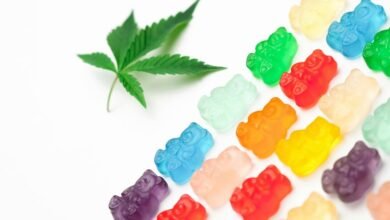Does Cbd Cause a Positive Drug Test

The relationship between CBD and drug testing raises important questions. While CBD itself is non-psychoactive, its association with THC complicates matters. Full spectrum CBD products can contain trace amounts of THC, potentially leading to positive drug test results. Understanding the nuances of CBD types and individual metabolism is crucial. What factors should consumers consider to minimize the risk of unexpected outcomes?
Understanding CBD and THC: Key Differences
Cannabidiol (CBD) and tetrahydrocannabinol (THC) are two prominent compounds found in cannabis, each with distinct characteristics and effects.
CBD benefits include potential relief from anxiety and inflammation, while THC effects are associated with psychoactive stimulation and euphoria.
Understanding these differences is crucial for individuals seeking therapeutic advantages without the mind-altering properties of THC, thereby promoting informed choices regarding cannabis use.
Types of CBD Products and Their THC Content
Various types of CBD products are available on the market, each differing in their THC content.
Full spectrum CBD contains all cannabis compounds, including up to 0.3% THC, which may lead to positive drug test results.
In contrast, broad spectrum CBD includes various cannabinoids without THC, offering a THC-free alternative.
Consumers should choose products based on their preferences and potential drug testing implications.
Factors Influencing Drug Test Results
While many factors can influence drug test results, the most significant include the type of CBD product consumed, the individual's metabolism, and the sensitivity of the testing method used.
Different testing methods can detect varying levels of THC, depending on the product. Additionally, unique metabolic pathways in individuals can affect how CBD is processed, potentially leading to false positives in drug tests.
Tips for Safe CBD Use and Drug Testing Considerations
When considering the use of CBD, it is essential to understand the potential implications for drug testing.
Users should carefully monitor their CBD dosage, as higher amounts may increase the risk of THC presence in the system.
Additionally, it's crucial to be aware of possible drug interactions, as these can affect both the efficacy of CBD and test outcomes.
Conclusion
Navigating the world of CBD can be akin to walking a tightrope; one misstep may lead to unexpected drug test results. While CBD itself is non-psychoactive, the presence of THC in full-spectrum products can tip the scales in favor of a positive test. By understanding product labels and opting for THC-free alternatives like broad-spectrum CBD, users can mitigate risks. Ultimately, informed choices and awareness of individual metabolism are essential for those concerned about drug testing outcomes.






